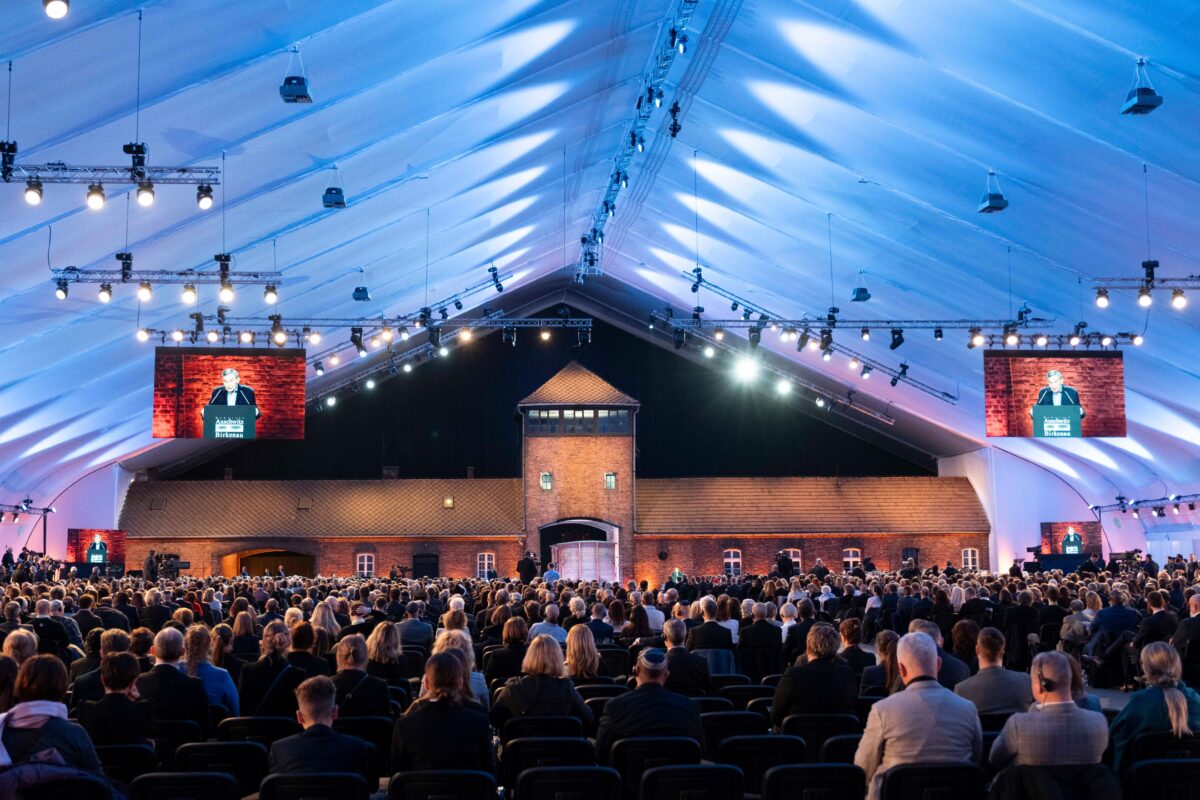There were glaring omissions on the list of dignitaries invited to the somber ceremony on January 27 marking the 80th anniversary of the liberation of the Auschwitz Birkenau extermination camp in Poland.
Presidents, prime ministers, kings and queens, representing 53 out of 195 countries, were there. Also in attendance were envoys from the Vatican and six global organizations, including the United Nations and the European Parliament. (See guest list below).
And, of course, Holocaust survivors were present.
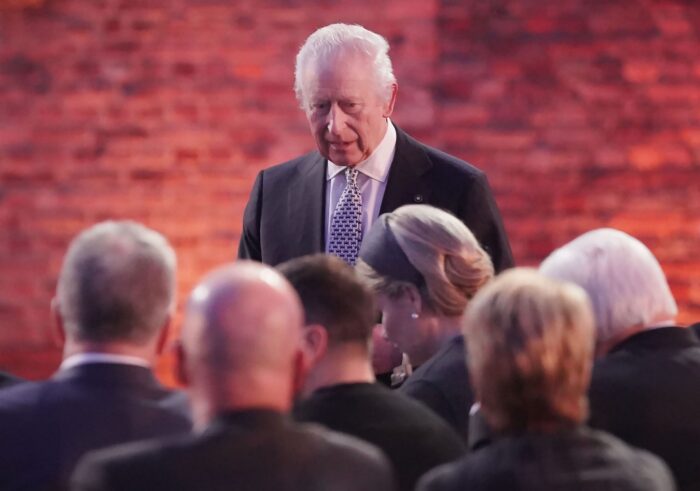
Among the dignitaries were King Charles II of Britain, President Andrzej Duda of Poland, Canadian Prime Minister Justin Trudeau, Chancellor Olaf Scholz of Germany, President Emmanuel Macron of France and President Tamás Sulyok of Hungary.
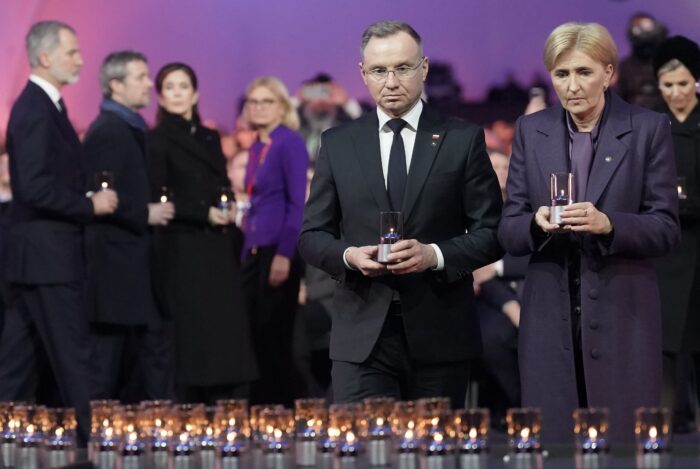
There was not a single delegation from the Arab world, though delegates from five majority Muslim countries — Albania, Azerbaijan, Bosnia and Herzegovina, Kazakstan and Kosovo — participated.
Turkey, a Muslim state with a venerable Jewish community, was missing. This was strange omission. Turkey was not only a co-sponsor of a 2005 United Nations resolution designating January 27 as International Holocaust Remembrance Day, but is still an observer at the International Holocaust Remembrance Alliance, which is composed of 35 nations and eight observer countries.
Israel, which has the world’s greatest concentration of Holocaust survivors, sent a cabinet minister instead of Prime Minister Benjamin Netanyahu.
Russia, whose army liberated Auschwitz, was not invited. China and India were not on the official guest list.
Only one African country, Rwanda, attended.
Argentina, apart from Panama, was the sole Latin American nation to show up. Brazil, an observer at the International Holocaust Remembrance Alliance, was conspicuously absent.
I do not know whether Arab states were asked to send delegates. I put that question to the Auschwitz memorial in an email, but did not receive a reply.
Be that as it may, the Holocaust is an extremely sensitive issue among Arabs in general and Palestinians in particular.
Arabs claim that Western countries facilitated the birth of Israel out of guilt over the Holocaust, an argument that Israeli governments have routinely dismissed.
Palestinians insist that the Holocaust was a Christian crime that had nothing to do with them or other Arabs. This ignores the fact that the Mufti of Jerusalem, Haj Amin al-Husseini, personally met Adolf Hitler and supported his genocidal antisemitic policy.
As Palestinian activist Omar Barghouti writes, “Palestinians — and Arabs more generally — bear no responsibility whatsoever for the Holocaust, a European genocide committed against mostly European Jews, Roma, and Slavs … It is therefore not incumbent upon Palestinians to pay in our lives, lands, and livelihoods the price for relieving Europe’s conscience of its collective guilt over the Holocaust.”
Jibril Rajoub, a member of Fatah’s Central Committee and a former high-ranking Palestinian Authority official, said, “We are paying the price for Europe’s crimes against (Jews).”
The Palestinian narrative holds that Palestinians were the innocent victims of an injustice inflicted on them by the West and the Zionist movement.
Israel signed peace treaties with Egypt and Jordan and normalization agreements with the United Arab Emirates, Bahrain and Morocco. (Israel’s normalization pact with Sudan remains dormant due to Sudan’s descent into civil strife). Yet none of these countries were present at the Auschwitz commemoration.
Turkey, the first Muslim state to recognize Israel’s statehood, had cordial relations with Israel from the 199os to 2010. During this interregnum, Turkey regularly publicized the story of Turkish diplomats in Nazi-occupied Europe who saved Jews.
Lately, as Turkey’s bilateral relations with Israel have worsened due to Israel’s conflict with the Palestinians and the war in the Gaza Strip, Turkey appears to have distanced itself from Holocaust memorialization.
When the International Criminal Court issued an arrest warrant against Netanyahu recently, Polish Deputy Foreign Minister Wladyslaw Bartoszewski warned that he might be arrested if he set foot in Poland. Prime Minister Donald Tusk retracted Bartoszewski’s comment, assuring Israel it would be safe for Netanyahu to travel to Poland.
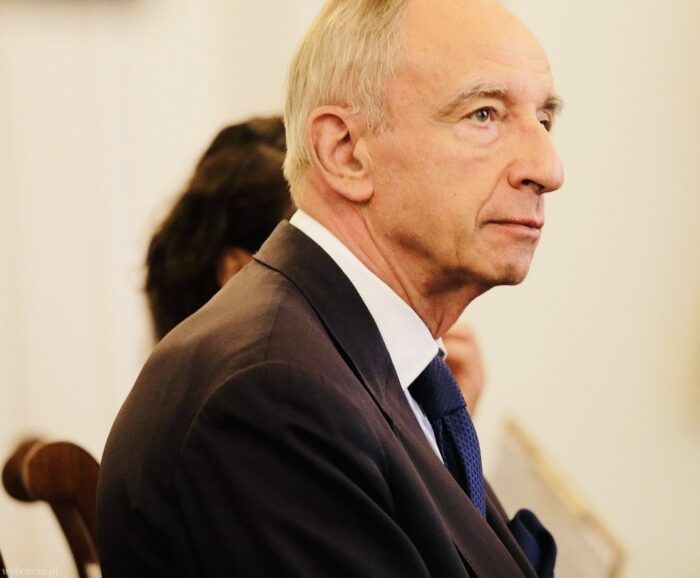
By then, Netanyahu had decided to skip the event. He sent the minister of education, Yoav Kisch, in his place
By all rights, Russian President Vladimir Putin should have been at Auschwitz, but politics got in the way. Since Russia’s invasion of Ukraine in February 2022, Putin has been a persona non grata in Western capitals. Poland, a close ally of Ukraine, made a point of excluding him and the president of Belarus, who has supported Russia’s aggression to the hilt.
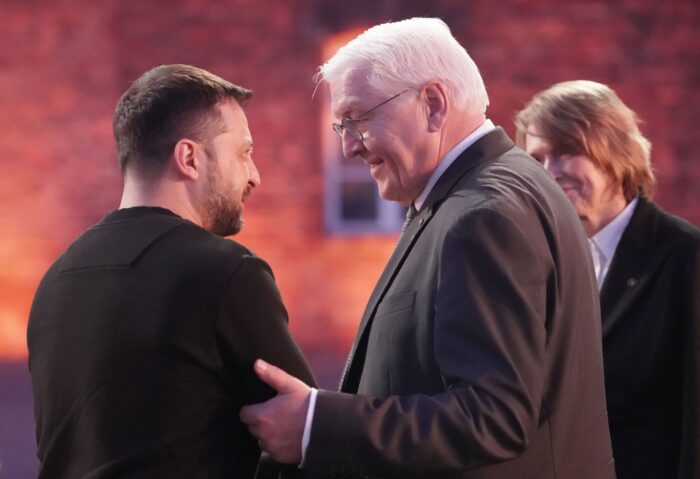
It is puzzling why China and India, which both have cordial ties with Israel and are unburdened by a history of antisemitism, were not invited to send dignitaries.
Brazil, the home of Latin America’s second largest Jewish community, was missing too, possibly because its current president, Luis Inacio Lula da Silva, has been a harsh critic of Israel’s military campaign in Gaza.
It is understandable why Rwanda — the site of a genocide against the Tutsis during a civil war in 1994 — sent its ambassador to Auschwitz. Nigeria, Africa’s most populous country, did not send a representative, notwithstanding its relations with Israel.
Neither did South Africa, which is home to Africa’s biggest Jewish community, but which is pro-Palestinian and which has accused Israel of genocide in the Gaza war.
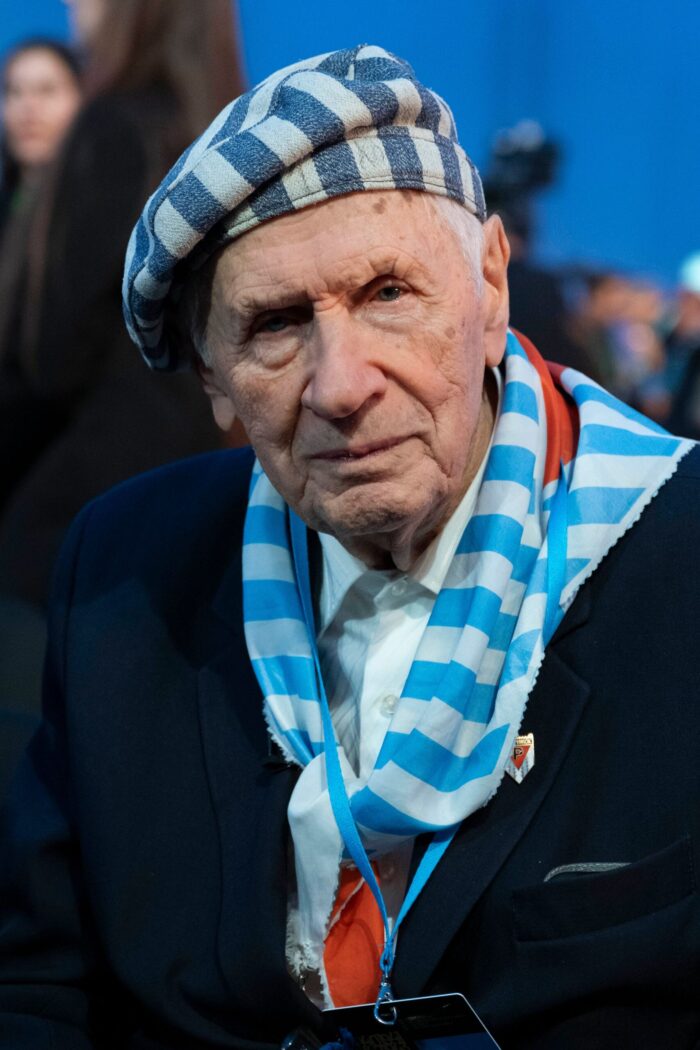
It should be noted that the United States, with a population of six million Jews, dispatched relatively low-level officials to the ceremony. The U.S. delegation was headed by Steve Witkoff, President Donald Trump’s special envoy to the Middle East. Trump, in recognition of the historic importance of Auschwitz in the Holocaust, should have chosen a person of the state of Secretary of State Marco Rubio.
These quibbles/objections may be of no consequence to some people. But it is unfortunate that political animosities led to the exclusion of at least one major power and tarnished an event that should have been totally shorn of politics.
An official list of dignitaries at Auschwitz:
Albania – Minister for Europe and Foreign Affairs, Igli Hasani
Argentina – Ambassador Alicia Irene Falkowski
Australia – Minister for Foreign Affairs, Senator Penny Wong
Austria – President Alexander Van der Bellen
Azerbaijan – Ambassador Nargiz Gurbanova
Belgium – Their Majesties the King and Queen of Belgium, Prime Minister Alexander De Croo
Bosnia and Herzegovina – Chairwoman of the Presidency Željka Cvijanović
Bulgaria – President Rumen Radev
Canada – Prime Minister Justin Trudeau
Croatia – Prime Minister Andrej Plenković
Cyprus – Minister of Defence Vasilios Palmas
Czech Republic – President Petr Pavel
Denmark – Their Majesties the King and the Queen of Denmark, Prime Minister Mette Frederiksen
Estonia – President Alar Karis
Finland – President Alexander Stubb
France – President Emmanuel Macron
Germany – President Frank-Walter Steinmeier, Chancellor Olaf Scholz
Greece – Deputy Minister of Foreign Affairs Anastasios Chatzivasileiou
Hungary – President Tamás Sulyok
Iceland – Minister of Foreign Affairs Þorgerður Katrín Gunnarsdóttir
Ireland – Prime Minister Micheál Martin
Israel – Minister of Education Yoav Kisch
Italy – President Sergio Mattarella
Kazakhstan – Ambassador Alim Kirabayev
Kosovo – President Vjosa Osmani Sadriu, Deputy Prime Minister and Minister of Foreign Affairs Donika Gërvalla-Schwarz
Latvia – President Edgars Rinkēvičs
Liechtenstein – Minister of Foreign Affairs, Education and Sport Dominique Hasler
Lithuania – Speaker of the Seimas Saulius Skvernelis
Luxembourg – H.R.H. the Hereditary Grand Duke, H.R.H. the Hereditary Grand Duchess, Prime Minister Luc Frieden
Malta – President Myriam Spiteri Debono
Mexico – Ambassador Juan Sandoval Mendiolea
Moldova – President Maia Sandu
Monaco – Minister of Foreign Affairs and Cooperation Isabelle Berro-Amadeï
Montenegro – President Jakov Milatović
Netherlands – His Majesty King Willem-Alexander, Her Majesty Queen Máxima, Her Royal Highness Catharina-Amalia Princess of Orange, Prime Minister Dick Schoof
New Zealand – Head of Mission Chargé d’affaires Thomas Fitzsimons
North Macedonia – President Gordana Siljanovska-Davkova
Norway – His Royal Highness Crown Prince Haakon, Prime Minister Jonas Gahr Støre
Panama – Ambassador Jorge Ricardo Silén Santacoloma(/p>
Poland – President Andrzej Duda and First Lady Agata Kornhauser-Duda, Prime Minister Donald Tusk
Portugal – Minister of the Presidency António Leitão Amaro
Romania – Minister of Culture Natalia-Elena Intotero
Rwanda – Ambassador Anastase Shyaka
Serbia – Minister of Foreign Affairs Marko Đurić
Slovakia – President Peter Pellegrini
Slovenia – President Pirc Musar
Sovereign Order of Malta – H.M.E.H. The Prince and Grand Master, Fra’ John Dunlap
Spain – His Majesty King Philip VI of Spain, Her Majesty Queen Letizia
Sweden – Her Royal Highness Crown Princess Victoria, Speaker of Parliament Andreas Norlén, Prime Minister Ulf Kristersson
Switzerland – President Karin Keller-Sutter
The United Kingdom – His Majesty The King Charles III
The United States – Steve Witkoff, United States Special Envoy to the Middle East
Ukraine – President Volodymyr Zelensky
Vatican – Apostolic Nuncio to Poland Archbishop Antonio Guido Filipazzi
And:
Council of Europe – Deputy Secretary General Bjorn Berge
European Commission – Commissioner Valdis Dombrovskis
European Council – President Antonio Costa
European Parliament – President Roberta Metsola
NATO – Deputy Secretary General Radmila Šekerinska
UNESCO – Director-General Audrey Azoulay
United Nations – Under-Secretary-General for Political and Peacebuilding Affairs Rosemary DiCarlo
